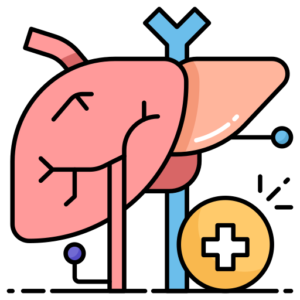The Cortisol test measures the level of cortisol in the blood. Cortisol is a hormone produced by the adrenal glands, playing a vital role in regulating metabolism, blood pressure, immune response, and the body’s response to stress.
Purpose of the Test:
•Diagnose adrenal gland disorders: Helps detect conditions like Cushing’s syndrome (excess cortisol) or Addison’s disease (low cortisol).
•Evaluate stress response: Assesses the body’s ability to handle physical or psychological stress.
•Monitor treatment: Tracks cortisol levels in patients receiving therapy for adrenal or pituitary disorders.
•Identify pituitary dysfunction: Helps detect issues with the hypothalamic-pituitary-adrenal (HPA) axis.
When the Test Is Done:
•Morning Cortisol (7–9 AM): Cortisol levels are highest in the morning.
•Evening Cortisol (3–5 PM): Levels naturally decrease in the evening; abnormal variations may indicate adrenal dysfunction.
Conditions Indicated by Abnormal Levels:
•High Cortisol Levels (Hypercortisolism):
•Cushing’s syndrome
•Chronic stress
•Pituitary tumors
•Low Cortisol Levels (Hypocortisolism):
•Addison’s disease
•Adrenal insufficiency
•Hypopituitarism
Key Notes:
•Cortisol secretion follows a daily rhythm (diurnal variation), so timing of the test is critical.
•Abnormal cortisol levels may require additional tests, such as ACTH stimulation or dexamethasone suppression, for a complete diagnosis.








Reviews
There are no reviews yet.